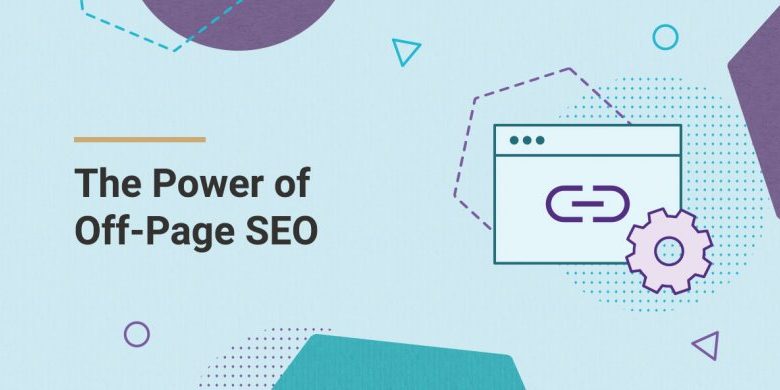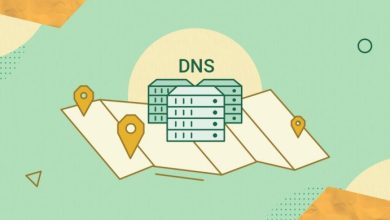Harnessing the Power of Off-Page SEO: a Definitive Guide

Harnessing the Power of Off-Page SEO: a Definitive Guide
Table of Contents
Successful SEO (search engine optimization) requires marketers to use both on-page and off-page SEO efforts. It is the combination of these two techniques that produce long-term, sustainable results in Google search.
But don’t jump ahead and assume I’m just talking about backlinks because today’s off-page SEO is much more than acquiring a few links to your site.
After we discussed in detail what is on-page SEO, today I’d like to explore off-page SEO, so you can get a better understand of how you can use this technique to improve your search engine ranking and drive more organic SEO traffic to your website or blog.
Before we begin, let me say we won’t be talking just about SEO factors. Rather, we’ll be talking about you and how you can be a better part of your community.
What is Off-Page SEO?
I like to consider off-page SEO as the process of helping search engines understand the who, why, and what of you. In particular, off-page SEO is focused on building the perception of your website or blog by demonstrating expertise, authority, and trust.
Google actually mentions this in its Search Quality Rating Guide which was first released back in 2015. Google updates this document often and the latest versions have strong references to E-A-T, which stands for Expertise, Authoritativeness, and Trustworthiness.
E-A-T helps Google know if:
- You are a trustworthy website or blog
- You are considered an authority in your subject matter, topic, or industry
- Provide high-quality content humans like and trust
Search engines have been trying for decades to find a way to return the best results for a given search phrase. To do that, they take into account the on-site SEO and off-page SEO factors.
Off-page SEO factors are important because these data points give search engines a better indication of how the world perceives your website or blog. A website that is useful is more likely to have a number of external data points that are created by users outside of the website owner.
Off-Page SEO Factors
There are a variety of off-page SEO factors that exist, and these will vary importance by year and by industry. As Google involves its algorithm and usage of artificial intelligence, what matters to SEO shifts. And as SEO consultants attempt to manipulate Google ranking, the off-page SEO factors will shift even more.
How do you stay up to date with what really matters in off-page SEO?
You need to stay focused on traditional marketing and PR that provides a means to freely share what you know and what you have with those within your community.
Off-Page SEO factors and traditional marketing efforts include:
- Google My Business
- Brand mentions and citations on other websites, articles, or the media
- Social media profiles and activity
- Guest blogging
- Forum post or answer websites like Quora or Reddit
- Podcast interviews and appearances
- Event speaking and presentations
- Video websites
- User reviews
- Referring domains and backlinks
- Local directories and listings
All of these factors are simply helping Google connect the online dots to see how you and your website (or blog) interacts with the community. The more interaction with the community, the more relevance, and authority you have to Google.
What About Backlinks
A backlink also referred to as an inbound link, is created when a third-party website or blog links over to your content. Backlinks help in driving brand awareness, website traffic, and help improve your organic search ranking.
There is a large segment of the SEO industry that hyper focuses on backlinks. They perform troll websites with requests for backlinks, pay for backlinks from websites or agencies that source them for a fee, or they inject malware into websites to programmatically build backlinks without website owners even knowing they are present.
Just don’t do it! Not only does all of this violate Google’s rules, but it is also an utter waste of time and money.
When discussing backlinks, Google specifically states:
Any links intended to manipulate PageRank or a site’s ranking in Google search results may be considered part of a link scheme and a violation of Google’s Webmaster Guidelines. This includes any behavior that manipulates links to your site or outgoing links from your site.
The following are examples of link schemes which can negatively impact a site’s ranking in search results:
- Buying or selling links that pass PageRank. This includes exchanging money for links, or posts that contain links; exchanging goods or services for links; or sending someone a “free” product in exchange for them writing about it and including a link
- Excessive link exchanges (“Link to me and I’ll link to you”) or partner pages exclusively for the sake of cross-linking
- Large-scale article marketing or guest posting campaigns with keyword-rich anchor text links
- Using automated programs or services to create links to your site
- Requiring a link as part of a Terms of Service, contract, or similar arrangement without allowing a third-party content owner the choice of qualifying the outbound link, should they wish.
Additionally, creating links that weren’t editorially placed or vouched for by the site’s owner on a page, otherwise known as unnatural links, can be considered a violation of our guidelines. Here are a few common examples of unnatural links that may violate our guidelines:
- Text advertisements that pass PageRank
- Advertorials or native advertising where payment is received for articles that include links that pass PageRank
- Links with optimized anchor text in articles or press releases distributed on other sites
- Low-quality directory or bookmark site links
- Keyword-rich, hidden or low-quality links embedded in widgets that are distributed across various sites, for example:
Visitors to this page: 1,472
car insurance - Widely distributed links in the footers or templates of various sites
- Forum comments with optimized links in the post or signature
The best way to get other sites to create high-quality, relevant links to yours is to create unique, relevant content that can naturally gain popularity in the Internet community. Creating good content pays off: Links are usually editorial votes given by choice, and the more useful content you have, the greater the chances someone else will find that content valuable to their readers and link to it.
After reading Google’s statement, it’s hard to believe there are still SEO companies pitching backlinks. But there are, and as marketers, you just need to stay clear of them to protect yourself and your website or blog.
The best backlinks will come from being part of your community, giving freely of yourself and your knowledge, and by helping those around you.
In the 15+ years of doing SEO, I’ve never done backlink outreach or paid for a backlink. And I won’t.
Instead, I’ve created quality content, I’ve spoken at industry conferences, I’ve been interviewed on podcasts, I’ve created free educational webinars, and I’ve made myself available to help others.
All of that activity has naturally brought backlinks from a lot of high quality and authoritative websites. And this is exactly what Google expects and wants.
Be the Peacock and Build Your E-A-T
In 2014 I gave my first WordCamp presentation in Miami. It was titled Be the Peacock and it was focused on building an online brand. Building off-page SEO is the same type of concept.
In this presentation, I talked about how there are thousands upon thousands of new URLs registered each day. The internet has grown so great, that it is difficult to stand out and be noticed. It is difficult to make yourself distinguishable and it is even harder to make sure that you are remembered.
To attract and capture a long-term online audience, you have to be the peacock.
You have to display your beauty proudly and in a very wide fan. You do not know who will look or when, so you need to make sure you are colorful and that you will be remembered for your uniqueness.
You need to figure out what will stand you apart from the masses and what will make someone remember your beauty. You need to be bold and beautiful.
That presentation hit close to home for me, because as I child I was very shy, and I stuttered. I was in remedial reading in 5th grade and was almost held back in school. I grew up on public assistance and I was a ward of the state (meaning the state was my legal guardian). To that little girl, I was far from a beautiful peacock. I thought I was nothing and I didn’t matter to anyone.
Back then I would never have imagined that I would speak at conferences around the world, appear as a guest on my favorite podcasts, or write guest articles for companies like SiteGround. I never would have guessed that one-day people would pay me by the minute for SEO advice on sites like Clarity.fm. I would have never guessed that anyone would care about who I am and what I had to say. I was wrong.
So, what happened? Why am I here now and how did I come so far from that little girl who could barely speak in public? How did I find my colors and how was I able to spread my feathers?
I found something I was passionate about, I found purpose in my work, and I realized I had a very strong desire to give back to the community. This changed everything.
I was raised in a small town by a village of surrogate parents, and when I became an adult, I knew I wanted to give back to society as a thank you for all those aunts, uncles, and random adults who helped raise me as a child.
That desire to give back and help others allowed my inner peacock to arrive and it allowed me to become an expert at off-page SEO. It wasn’t because I was chasing backlinks or media mentions. I just wanted to do good and I wanted to share my knowledge so I could help others.
That is when off-page SEO really works. That’s when it becomes natural and when your E-A-T with Google develops without you ever asking anyone for a backlink or mention.
Remember…
When you think about the idea of off-page SEO and you question what you can do to help build your reputation with Google, I want you to think back to my story and how life and time allowed me to become an online peacock who let her colors shine.
I want you to look inside yourself to find your passion and purpose. And then I want you to turn that into good for your community.
When you do that, off-page SEO will come.
A Final Reminder of Off-Page SEO
Website owners – including myself – tend to get caught up with only one technique. They focus entirely on on-page SEO and forget about off-page SEO or vice versa. In real-world applications, you really need both to rank in search.
On-page SEO helps establish the SEO foundation for your website or blog. Off-page SEO follows those efforts by validating your reputation and building your E-A-T with Google.
You have to have a balance of both SEO techniques to prove that you have quality content and that the world cares about this content.
Once you demonstrate your authority via off-page SEO, your on-page SEO efforts feel much more natural and they provide much greater results.
When you think about off-page SEO, remember to focus on your passion, your purpose, and your community. Giveback and give as often as you can.

